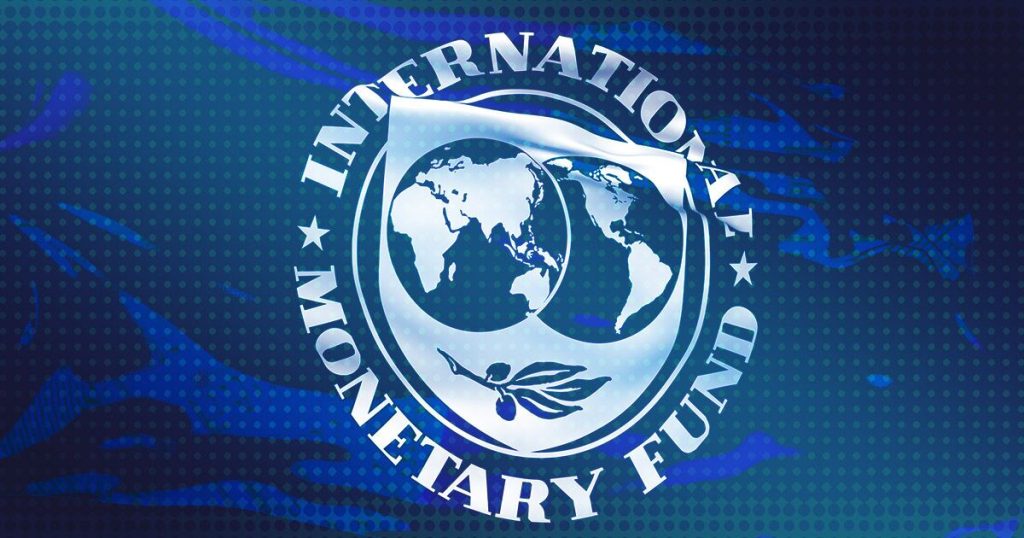IMF Backs Crypto to Solve Nigeria’s Forex Issues Despite Local Crackdown

In a striking development, the International Monetary Fund (IMF) has positioned itself in favor of cryptocurrency as a potential solution to Nigeria’s ongoing foreign exchange (forex) challenges. This endorsement comes amidst a local regulatory crackdown on digital currencies, creating a complex scenario that balances innovation with stringent oversight. In this article, we delve into the nuances of this situation, exploring how cryptocurrency could be a game-changer for Nigeria’s economic landscape.
Understanding Nigeria’s Forex Crisis
The Root of the Problem
Nigeria, Africa’s largest economy, has grappled with significant forex scarcity, impeding business operations and slowing economic growth. This scarcity stems primarily from fluctuations in oil prices, Nigeria’s major export, and inconsistent foreign investment flows.
Impact on the Economy
The forex shortage has led to a ripple effect across various sectors:
- Manufacturing: Delays in procuring raw materials.
- Retail: Increased costs and reduced inventory.
- Services: Hindered financial transactions.
IMF’s Stance on Cryptocurrency
Historical Skepticism
Traditionally, the IMF has been cautious, often critical, of cryptocurrency due to concerns over financial stability, security, and regulatory oversight.
A Shift in Perspective
However, recognizing the unique challenges faced by Nigeria, the IMF now sees digital currencies as a viable tool to alleviate forex issues. This shift underscores a broader recognition of crypto’s potential in global financial systems.
The Promise of Cryptocurrency in Nigeria
Enhancing Forex Availability
Cryptocurrencies, with their global accessibility, can provide an alternative avenue for forex, bypassing traditional bottlenecks in the financial system.
Benefits to Local Businesses
- Speed: Faster transactions across borders.
- Cost: Lower transaction fees compared to traditional banking.
- Accessibility: Inclusion of unbanked or underbanked populations.
Regulatory Challenges and Responses
Government Crackdown
Despite the IMF’s support, the Nigerian government has implemented strict regulations on crypto transactions, citing concerns over scams, money laundering, and loss of monetary sovereignty.
Balancing Act
The challenge for Nigeria will be to harness the benefits of cryptocurrencies while mitigating potential risks through effective regulation.
Case Studies: Global Examples
Zimbabwe and Venezuela
These countries have similarly leveraged cryptocurrencies to tackle economic challenges, providing valuable lessons on balancing innovation with regulatory prudence.
Potential Roadblocks
Volatility of Cryptocurrencies
The inherent price volatility can pose risks to economic stability if not properly managed.
Technological Barriers
Widespread adoption requires robust technological infrastructure and digital literacy.
The IMF’s endorsement of cryptocurrencies as a solution for Nigeria’s forex issues is a testament to the evolving role of digital currencies in the global economy. However, navigating this landscape requires a careful approach to regulation and education to fully harness the benefits while protecting against risks.
FAQs
- What are the main forex challenges in Nigeria? Nigeria faces a forex shortage primarily due to fluctuating oil prices and uneven foreign investment flows.
- How could cryptocurrencies solve these forex issues? Cryptocurrencies can offer more consistent access to forex through decentralized, global networks.
- What are the risks of using cryptocurrencies in Nigeria? Risks include volatility, potential for scams, and technological barriers to adoption.
- What lessons can Nigeria learn from other countries using crypto? Countries like Zimbabwe and Venezuela highlight the importance of balancing innovation with strong regulatory frameworks.
- How is the IMF supporting Nigeria with its forex issues? The IMF supports the use of cryptocurrencies to provide alternative forex sources and enhance economic stability.





